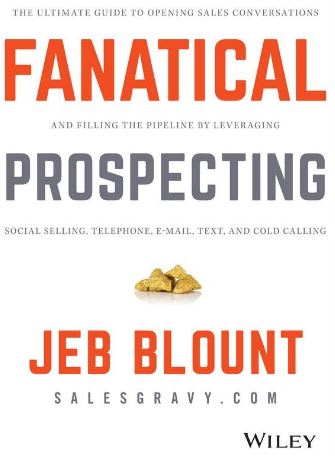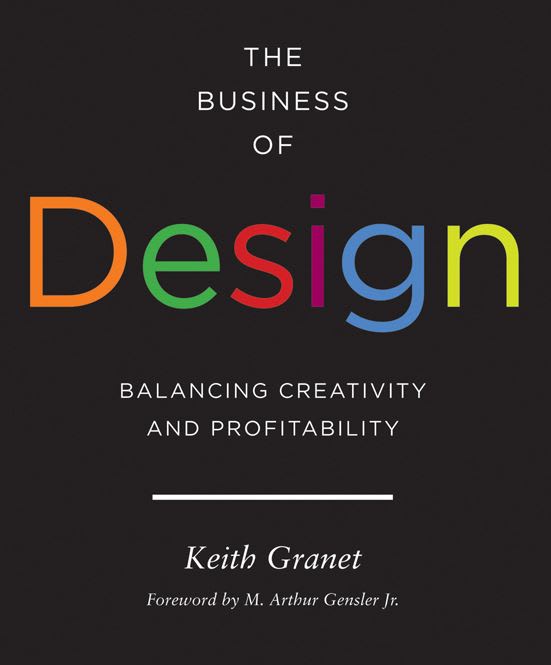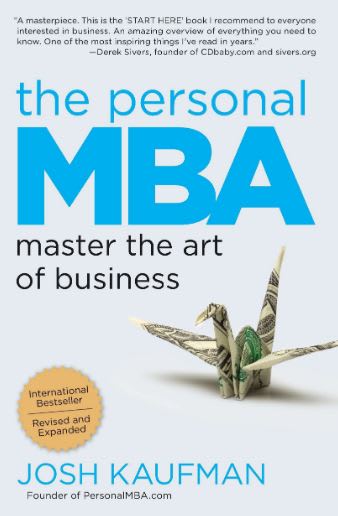-
1
- #1
Reading through "First Solo Project" prompted me to make this post. I was gonna write a comment but it got too big and I didn't wanna steal the thread.
I'm starting to get a little itchy to leave my current job and set out on my own.
Current Side Work
Current Employment
What to do next?
Other pertinent info....
I'm starting to get a little itchy to leave my current job and set out on my own.
Current Side Work
I do smaller non-competitive engineering on the side (wood, cold-formed steel, concrete, etc.). Currently I only have one client, an architect. I average around one $2000, 20hr, job a month through him. I think I can charge a lot more, but have no way of knowing. I do the work before or after work, and my employers know and approve of it because it gives me the required experience for my CA SE.
Current Employment
I work for a structural steel sub-contractor, have an $88k salary, great health insurance, 4% 401k matching (I put in 10%), and an ESOP. (My share of the company was valued at $13,000 last year, but after a bad year the ESOP is worth ZERO). Should I wait a year to see if the ESOP will get back before cashing out and leaving the company? My feeling is I shouldn't base my decision off the ESOP - in the end it won't make a big difference.
My employers say they want to have me in a leadership position in the future, and have had me listen in on calls with CEO and COO to train me to basically do what they do in the future. Our lead, senior engineer (~$150K), CEO and COO (~$250k+), and many others are going to retire in 5-10 years, so there's big potential for me. But work has been so slow this last year and still is currently. The ESOP is at zero because last year we had a couple horrible jobs and the company went from having $5M in cash to being $2M in debt.
Lately I feel I've just been wasting my time at work, as there's been nothing to do, so I end up making super awesome complex spreadsheets that I'll probably never use. It drives me crazy. It used to not be so bad because I could study for the PE/SE exams when there was nothing to do. A couple of times I've down work on side jobs when there's been nothing to do but it racks me with guilt so I try to not do that anymore, but I'll justify it in my head that my employer's paying me for my time to be in the office, and if the company has nothing for me to do then that's the risk their taking. I know that must be a bad attitude, and I should always be finding something to do. I just don't like wasting time and feel that if I was on my own I wouldn't have that dilemma. What do other employees do when there's nothing to do? I feel like it's gotta be a pretty common issue but either it bugs me more than most and I'm making a bigger deal of it, or no one else wants to talk about it.
My employers say they want to have me in a leadership position in the future, and have had me listen in on calls with CEO and COO to train me to basically do what they do in the future. Our lead, senior engineer (~$150K), CEO and COO (~$250k+), and many others are going to retire in 5-10 years, so there's big potential for me. But work has been so slow this last year and still is currently. The ESOP is at zero because last year we had a couple horrible jobs and the company went from having $5M in cash to being $2M in debt.
Lately I feel I've just been wasting my time at work, as there's been nothing to do, so I end up making super awesome complex spreadsheets that I'll probably never use. It drives me crazy. It used to not be so bad because I could study for the PE/SE exams when there was nothing to do. A couple of times I've down work on side jobs when there's been nothing to do but it racks me with guilt so I try to not do that anymore, but I'll justify it in my head that my employer's paying me for my time to be in the office, and if the company has nothing for me to do then that's the risk their taking. I know that must be a bad attitude, and I should always be finding something to do. I just don't like wasting time and feel that if I was on my own I wouldn't have that dilemma. What do other employees do when there's nothing to do? I feel like it's gotta be a pretty common issue but either it bugs me more than most and I'm making a bigger deal of it, or no one else wants to talk about it.
What to do next?
I'm 4 years out of college (master's degree). First couple years were not so slow, I was learning more, and working towards my PE, then my SE (just passed, but still need another year of experience to be licensed in CA). Now that I passed the SE exam, and work is slow I'm just feeling so itchy for the next thing. Maybe I need to talk to my boss about wanting a challenge to work towards, maybe I need to start my own business. I love the idea of being my own guy, fully responsible and in charge of my own income and not at the mercy of higher ups. Some of this comes from my Dad being a self employed contractor and growing up having the impression that employees were too scared to take risk to make more money and content with making okay money for having the security of a salaried job, while the business owner is the risk taker and more profitable and thus "better". I know that's flawed thinking and offensive and not true but it's in my head and I'm just word-vomitting and putting all my thoughts out there.
I've been thinking I should try to get more clients (I have a structural engineer mentor who is self employed, he says contractors are better clients than architects? ) I could pick up more side jobs until I can go off on my own, but I also don't want to not have anytime to be with my wife and kids, and I don't want to be dishonest with my current employer. I also don't have any E&O insurance, but my co-worker said that the companies E&O insurance covers any work we do on the side. That doesn't seem right to me though, and am wondering if I should get E&O insurance if I plan to do more sidework, or not worry about it until I'm out on my own. If I were to be on my own I'm not sure if I'd want to be my only employee or hire others.
I'm afraid of making the wrong decision. I don't know what I want more or what has more potential upside (be it money, satisfaction, freedom, spending more time with wife and kids, etc). I don't know what I'm going to regret not doing in 10-20 years. I don't want to work 15 more years making little more than I am now doing the same thing and being torn like I am right now, but I also don't want to quit my job and fail my start up, or realize the grass is not as green as it seemed from the other side, and realize I gave up a great opportunity at the company.
I've been thinking I should try to get more clients (I have a structural engineer mentor who is self employed, he says contractors are better clients than architects? ) I could pick up more side jobs until I can go off on my own, but I also don't want to not have anytime to be with my wife and kids, and I don't want to be dishonest with my current employer. I also don't have any E&O insurance, but my co-worker said that the companies E&O insurance covers any work we do on the side. That doesn't seem right to me though, and am wondering if I should get E&O insurance if I plan to do more sidework, or not worry about it until I'm out on my own. If I were to be on my own I'm not sure if I'd want to be my only employee or hire others.
I'm afraid of making the wrong decision. I don't know what I want more or what has more potential upside (be it money, satisfaction, freedom, spending more time with wife and kids, etc). I don't know what I'm going to regret not doing in 10-20 years. I don't want to work 15 more years making little more than I am now doing the same thing and being torn like I am right now, but I also don't want to quit my job and fail my start up, or realize the grass is not as green as it seemed from the other side, and realize I gave up a great opportunity at the company.
Other pertinent info....
I'm only 27 years old but I also have a wife and soon to be four children plus a $220,000 mortgage (but no other debt) for a 1000 sf house we're quickly outgrowing (value of house is ~$310,000 and we've got $40,000 in savings, saving an additional $1000 a month). We're debating moving into a larger $450,000 2000sf house next year, but I'm unsure if we should do that if I'm thinking of starting my own business. My wife and I even think of leaving California to go somewhere less expensive, and probably would've by now if we didn't have all of our family in California (I've heard being a CA SE but living elsewhere can be a good deal). Just another decision tormenting me, but we'll probably stay in California - just tired of scrimping and saving with 10% retirement savings (+4% company match = 14% + ESOP), 10% tithing, and saving $500 every other week for starting business/buying bigger house.
Lastly, I hate sounding braggadocious but feel that I am an exceptional engineer and could be an exceptional business owner. I was top of my classes without having to put forth nearly the same effort as my classmates. Classmates always complained about how hard classes were and how much time they spent on assignments, and I never really struggled and was always able to complete assignments much quicker than they, and often got the highest score on exams. I passed the FE, PE, CA state exams, and SE all first try without feeling crammed on time. I did both parts of the SE simultaneously while having a wife, 3 kids, and doing side jobs and still didn't feel like I was over straining myself. I already feel more capable than the other engineer thats been working here for 15 years, and know my employers agree with that. I can get stuff done in a third of the time it takes other engineers, and I am thorough. I feel that my time would be so much more efficiently used having my own business and could potentially be very lucrative. On the other hand I know being an exceptional engineer doesn't mean an exceptional business owner, and my current job could also be potentially lucrative. But both also have potential vastly under performing expectations. I know after proof reading this paragraph how arrogant I sound and I hate it and don't talk that way in actual conversations.
Also is there no way to PM people on this site? It'd be nice to share some things privately instead of putting it all out on the internet for all to see.
Lastly, I hate sounding braggadocious but feel that I am an exceptional engineer and could be an exceptional business owner. I was top of my classes without having to put forth nearly the same effort as my classmates. Classmates always complained about how hard classes were and how much time they spent on assignments, and I never really struggled and was always able to complete assignments much quicker than they, and often got the highest score on exams. I passed the FE, PE, CA state exams, and SE all first try without feeling crammed on time. I did both parts of the SE simultaneously while having a wife, 3 kids, and doing side jobs and still didn't feel like I was over straining myself. I already feel more capable than the other engineer thats been working here for 15 years, and know my employers agree with that. I can get stuff done in a third of the time it takes other engineers, and I am thorough. I feel that my time would be so much more efficiently used having my own business and could potentially be very lucrative. On the other hand I know being an exceptional engineer doesn't mean an exceptional business owner, and my current job could also be potentially lucrative. But both also have potential vastly under performing expectations. I know after proof reading this paragraph how arrogant I sound and I hate it and don't talk that way in actual conversations.
Also is there no way to PM people on this site? It'd be nice to share some things privately instead of putting it all out on the internet for all to see.




